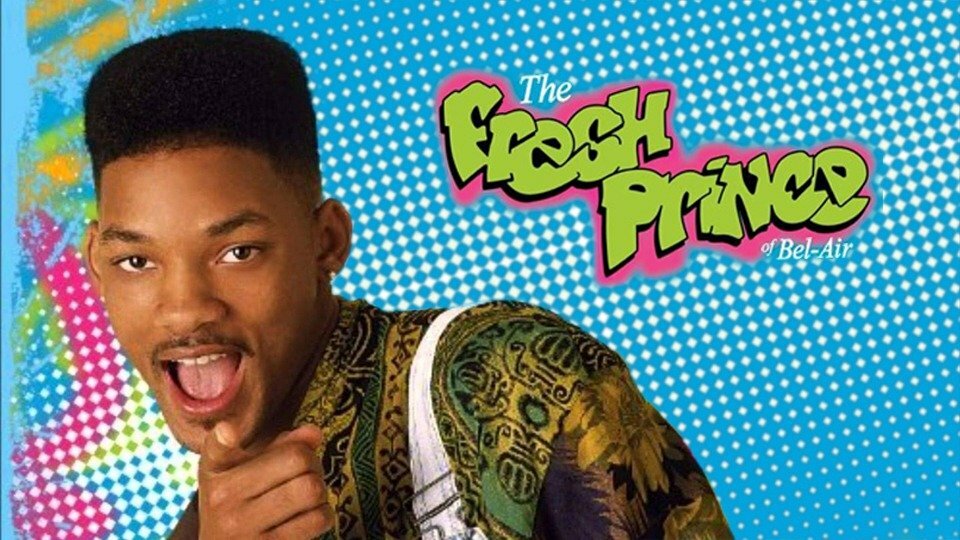Introduction
“The Fresh Prince of Bel-Air,” a classic American sitcom that premiered on September 10, 1990, not only launched the acting career of the charismatic Will Smith but also left an indelible mark on the landscape of television. Created by Andy Borowitz and Susan Borowitz, the show showcased the comedic talents of its cast while addressing relevant social issues. Over six seasons and 148 episodes, “The Fresh Prince of Bel-Air” became a cultural phenomenon, blending humor, heart, and social commentary.
Seasons 1-3: The Arrival of the Fresh Prince (1990-1993)
The series begins with the iconic theme song, “The Fresh Prince of Bel-Air,” narrating the journey of a young man named Will Smith, born and raised in West Philadelphia, who is sent to live with his wealthy relatives in Bel-Air after a run-in with trouble. Will’s fish-out-of-water experiences in the opulent Banks household, led by Uncle Phil (James Avery) and Aunt Vivian (Janet Hubert/Daphne Maxwell Reid), provided ample comedic material. The dynamic between Will and his sophisticated cousin Carlton (Alfonso Ribeiro) became a central focus, as the show explored themes of class, race, and identity with humor and sincerity.
Seasons 4-6: Maturation and Social Commentary (1993-1996)
As the characters matured, so did the show. The latter seasons of “The Fresh Prince of Bel-Air” delved into more serious topics while maintaining its humor. Episodes like “Papa’s Got a Brand New Excuse” and “I, Done” tackled issues such as absent fathers and the struggles of growing up. Will’s emotional confrontation with his estranged father, played by Ben Vereen, in the former episode remains one of the most poignant moments in sitcom history.
The Comedic Genius of Will Smith
At the heart of the show’s success was the undeniable comedic talent of Will Smith. His infectious charisma, witty one-liners, and ability to effortlessly transition between humor and heartfelt moments endeared him to audiences worldwide. “The Fresh Prince of Bel-Air” showcased Smith’s versatile acting skills, paving the way for his illustrious career in both film and music.
Breaking Stereotypes: Uncle Phil and Carlton
“The Fresh Prince of Bel-Air” challenged stereotypes with its portrayal of the Banks family. Uncle Phil, a successful African-American judge, and Carlton, his preppy and academically inclined son, defied traditional racial expectations. The show’s nuanced exploration of identity within the African-American community contributed to its cultural significance.
Aunt Vivian’s Recasting
A notable aspect of the series was the controversial recasting of Aunt Vivian. Janet Hubert played the role in the first three seasons before being replaced by Daphne Maxwell Reid. The reasons for the change remain a subject of speculation, but both actresses brought their unique flair to the character, leaving a lasting impact on fans.
Legacy and Cultural Impact
“The Fresh Prince of Bel-Air” endures as more than just a sitcom; it’s a cultural touchstone that transcends generations. Its impact is felt not only through catchphrases like “How you doin’?” and the “Carlton Dance” but also in discussions about representation, diversity, and the importance of family values in popular media.
Reunion Special and Beyond
In November 2020, HBO Max released a reunion special that brought the original cast back together, reflecting on the show’s impact and sharing behind-the-scenes stories. The special not only provided a nostalgic trip down memory lane for fans but also underscored the enduring camaraderie among the cast members.
Conclusion
“The Fresh Prince of Bel-Air” remains a beloved classic that resonates with audiences for its humor, relatable characters, and the universal themes of family and self-discovery. As we continue to celebrate the misadventures of Will Smith in the Banks family mansion, the show’s legacy endures as a testament to the power of laughter, love, and breaking down societal barriers in the world of television.
